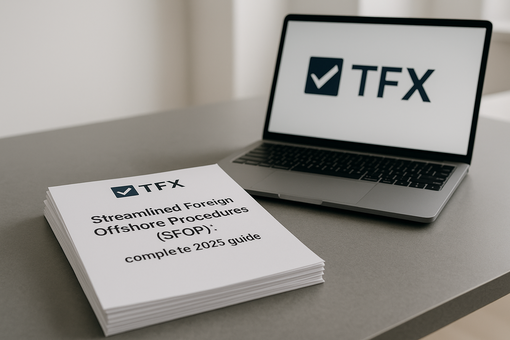How we helped a US-Canadian expat recover $30,000 lost to double taxation

When John (name changed for privacy) relocated from Canada to the US, he was surprised to receive a substantial tax bill from the IRS – despite having already paid $48,000 CAD in Canadian taxes. To cover the US liability, he had to liquidate $30,000 from his wife’s investments. That’s when he knew something wasn’t adding up.
He tried sorting it out with tax advisors in both countries, but it wasn’t resolved until he connected with our team at Taxes for Expats.
Problem: double taxation
John had been double taxed on his Canadian severance pay. Despite paying full tax on it in Canada, John’s US tax return treated the same income as fully taxable again – with no Foreign Tax Credit (FTC) relief to prevent double taxation.
“Accountants working in the US will more commonly miss the benefits we look for on every return. They may see Canadian wages and not immediately think about foreign tax credits,” explains Reid Kopald, enrolled agent (EA) and tax manager at Taxes for Expats.
John’s situation was further complicated by state tax obligations and questions about how the $30,000 withdrawn from his wife’s brokerage account would be taxed in 2024.
How our expat tax experts solved the case
Expert review uncovers missed FTC
Our team began with a comprehensive review of John’s 2023 tax filings. Our review confirmed that the FTC had not been claimed for John’s severance pay – even though it clearly qualified. Without it, he ended up paying US tax on income that had already been fully taxed in Canada.
As Reid Kopald notes, “I spot errors on half the returns that we didn’t prepare for clients who come to us for reviews of another accountant’s work. Frequently, the errors involve mechanics that we deal with on a daily basis.”
It’s not just foreign employment income that gets overlooked, explains Reid Kopald:
“Another type of FTC frequently missed or misapplied is that on US source income that the US relieves double tax on through treaty provisions. First, the IRC provides a credit only for foreign source income. Second, if the return shows US income and that’s taxed in a foreign country, a treaty may provide relief.”
Amending federal and state returns
We prepared and filed an amended US federal tax return (Form 1040-X) to properly claim the FTC for John’s Canadian severance pay, significantly reducing his US tax liability.
John was a tax resident of Illinois – which, like many states, uses the federal Adjusted Gross Income (AGI) as the starting point for calculating state income tax. This made it essential to amend his Illinois return after correcting the federal AGI. Ensuring consistency between the two allowed John to receive all the state-level relief he was entitled to.
Optimizing filing status
At the time of his original filing, John and his wife had chosen the Married Filing Separately (MFS) status – common when one spouse has foreign income or when there’s uncertainty around joint filing eligibility. During our consultation, we discussed whether amending their 2023 returns to Married Filing Jointly (MFJ) could result in additional savings.
As part of our ongoing engagement, we prepared a draft MFJ return at no additional cost. The results were clear: switching to MFJ would generate approximately $2,000 in extra tax savings – more than covering our preparation fee.
Clarifying brokerage transactions
John was also concerned about the $30,000 withdrawn from his wife’s brokerage account to pay the tax bill.
Since these funds came from selling stocks in a standard brokerage account (not a retirement account), only the capital gains or losses from those sales would be reported on their 2024 return. Most of the sales resulted in losses, minimizing any additional tax impact.
Results and client savings
John received a full refund of the excess US tax he had paid on his Canadian severance. The amended Illinois return provided further relief, aligning with the corrected federal AGI.
Amending from MFS to MFJ for 2023 resulted in an additional $2,000 in tax savings.
What’s the bottom line?
- Federal refund: ~$30,000 (from properly claimed FTC)
- State refund: additional savings from the amended Illinois return
- MFJ filing: ~$2,000 in extra savings for 2023
Total direct savings: over $32,000.
John’s case is a textbook example of how expertise can make all the difference for US expats. If you’re a US expat or cross-border taxpayer struggling with complex tax issues, you can count on us. Our team specializes in finding the credits, deductions, and treaty benefits that others often miss.




